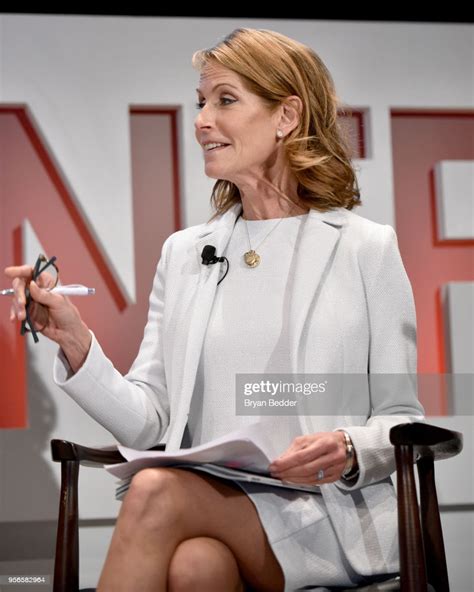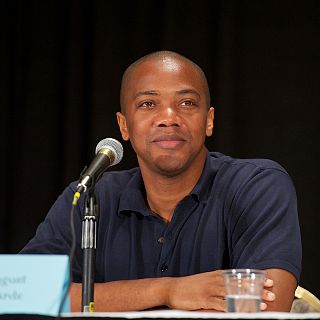A Quote by Caitriona Balfe
The people who used to hold the purse strings were a select group of white, middle-aged men, but that's changing, and the more it continues to change, the more we'll see inclusive stories get told.
Related Quotes
It used to be, if you were a reporter, you wrote a story and then you moved on to the next one. We were used to people coming to the New York Times. We waited for them to turn on our website or to pick up our print paper and see what we have. We now understand that we have to make our stories available to our readers. A lot of people get their news from Facebook or Twitter and we want to make sure that they see some of our best stories there, too. We do this more aggressively now than we did before.
Life expectancy for middle-aged white women has dropped dramatically over the past decade. Researchers didn't understand what was going on and so they were studying it and then very recently they realized it is driven by opioids. Why is that? They say now that it is because women are more likely to see a doctor for pain.
I can actually get involved in getting stories off the ground that no one would ask me to be in because I'm the wrong age, the wrong sex, the wrong nationality, or whatever. I've found it quite exhilarating to have that freedom to tell the stories that aren't just about middle-aged white English guys.
Whatever a 'superior' group has will be used to justify its superiority, and whatever an 'inferior' group has will be used to justify its plight. Black men were given poorly paid jobs because they were said to be 'stronger' than white men, while all women were relegated to poorly paid jobs because they were said to be 'weaker.
I don't think that there's a target audience at all. These stories were in circulation. The stories were told by men, told in the marketplace by men, but also behind doors by women, but there's no real record of this. It's likely they were told by women to children in their interior rooms. The story could be a negative story, they could be presented as a, "Watch out! Women will get round you, do things to you, weave you in their toils." It could be buried in it an old cautionary story about women and their wiles.
The film world is far more male-dominated. I mean, the numbers are staggering at the level of how many people on set there are, and almost all the trades in film, there's a lot more men. So I can see without anyone intending to be biased [that] we have kind of a collective choosing of men's stories and a collective of taking men's stories seriously.
A man is not merely a man but a man among men, in a world of men. Being good at being a man has more to do with a man’s ability to succeed with men and within groups of men than it does with a man’s relationship to any woman or any group of women. When someone tells a man to be a man, they are telling him to be more like other men, more like the majority of men, and ideally more like the men who other men hold in high regard.




































